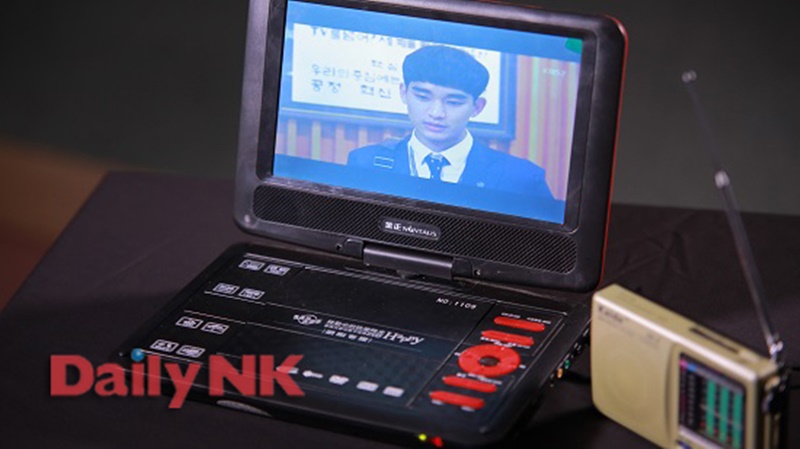
Some time ago, Han Song Chol (50s, alias) a North Korean living in Pyongyang, was watching Korean Central TV (KCTV) while preparing dinner when a Ministry of State Security (MSS) agent suddenly barged into his house. The agent asked sarcastically, “Oh, so you’re watching this now?”
Han suspected that the agent was assessing his loyalty to the regime and answered, “What’s wrong with me loving to hear the voice of the Party in the evening?” He expected to be praised for saying this, but the agent only replied in an almost insulting tone, “Is that you speaking truthfully?” The agent left after telling Han to watch South Korean TV because “they’re better quality.” Han’s story soon began circulating throughout his neighborhood.
Kim Hyang Mi (alias, 30s) smuggles goods for a living in Ryanggang Province and recently experienced something unusual. An MSS agent came to her one day and said, “Trust me. I won’t let you get caught” while quietly telling her to put South Korean movies on his memory (USB/SD) card. Kim suspected a trap, and refused. The MSS agent, however, said, “I need to get [the films] from someone like you so I don’t get caught. I’ll get caught if I ask those below me,” and repeatedly asked her to put movies on his memory card.
These and other reports from Daily NK sources in North Korea suggest that MSS agents are leading the charge in spreading South Korean content in North Korea, despite being tasked with cracking down on South Korean and other “impure” video content. There are even cases where agents approach smugglers or video content distributors and ask them for South Korean videos.
There has been a rise in the number of MSS agents who enjoy watching South Korean films and dramas. Chinese content is significantly less popular. A Daily NK source in Pyongyang said on December 6 that an MSS agent had told him that “South Korean [films/dramas] are high quality. They’re not even comparable to China’s [films/dramas].”
Similar cases can also be found in the crackdowns on mobile phone use and the sending of text messages.
Agents tasked with crackdowns mobilized from the Kimilsungist-Kimjongilist Youth League and the MSS often try to catch young North Koreans at the markets in the act of sending and receiving text messages using South Korean phrases. These agents will frequently accuse young North Koreans of watching South Korean video content because they are sending text messages with South Korean phrases.
The agents, however, have difficulty raising an issue over such behavior. Young North Koreans will simply reply that they “have always written like this” or even accuse the agents of watching South Korean video content – after all, how would the agents know South Korean phrases if they weren’t familiar with South Korean dramas or films themselves?
North Koreans now appear to be unafraid of being caught using South Korean phrases and many are reportedly “prepared and ready” to face continued state-sponsored crackdowns on mobile phone use and the viewing of South Korean content.
That doesn’t mean, however, that the authorities have become lax in cracking down on the “South Korean wave”. Crackdowns on South Korean dramas and films continue to increase despite the overall improvement in relations between the two Koreas.
“The Anti-Socialist Group’s crackdowns have stopped, but the authorities continue to crack down on smugglers and those watching ‘impure’ video content,” a separate source in Pyongyang reported.
“The authorities crack down on those watching South Korean movies. Those caught are immediately expelled from their district without even a preliminary hearing [at court].”
However, he went on to note, “what has changed since the South Korean president visited is that people are still punished severely for watching South Korean movies, regardless of the state of inter-Korean relations.”



















